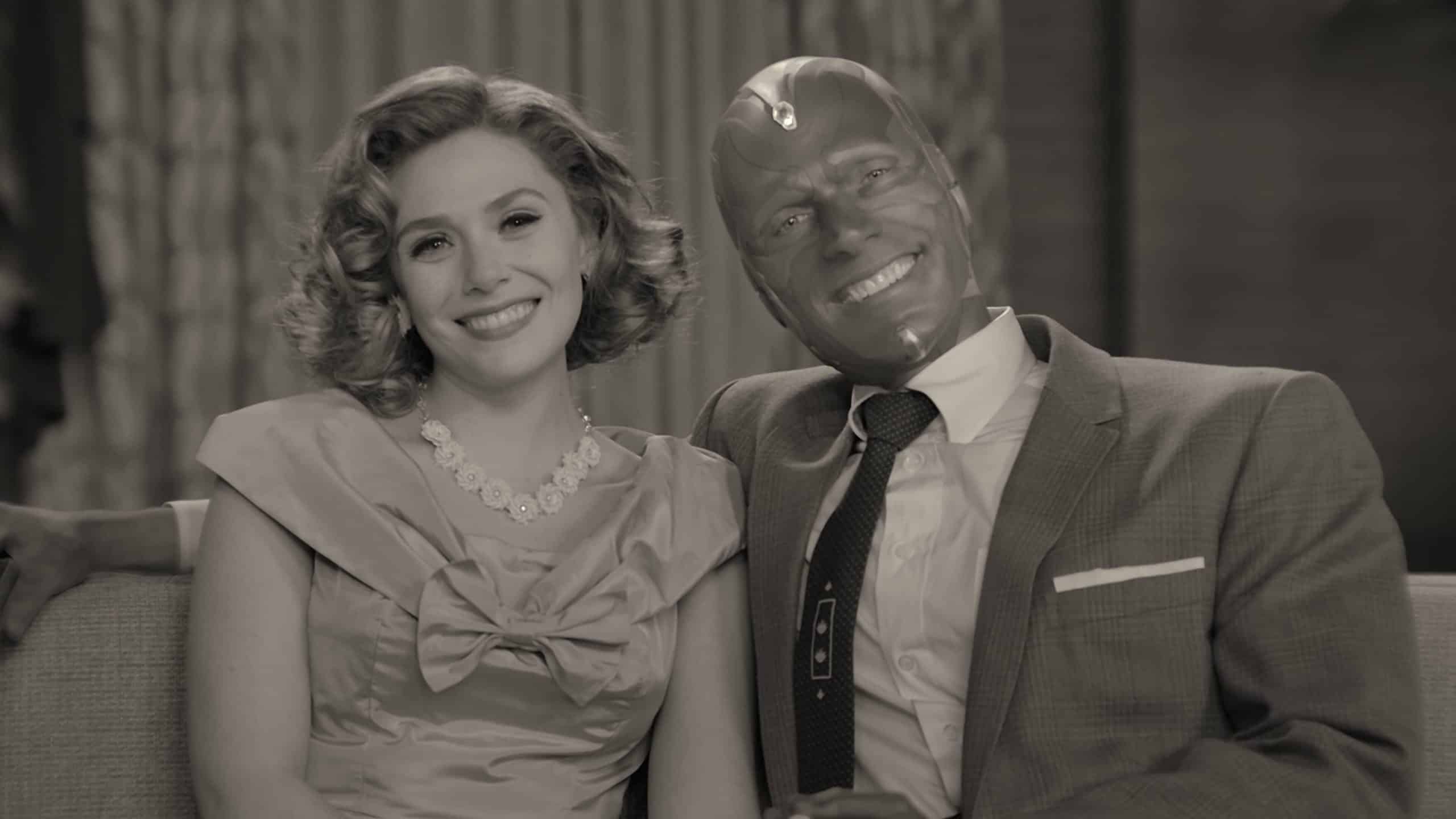Warning: this article contains spoilers for WandaVision.
“What is grief, if not love persisting?”–Vision
Loss and grief are powerful motivators. Each of us has experienced, or will experience, the loss of a loved one in the course of our lives. That loss can feel world shattering, even if you’re a superhero.
Wanda Maximoff, the show’s titular character (also known as “Scarlet Witch”), has to deal with the loss of her beloved Vision, the show’s other main character, not once but twice during the events of Avengers: Infinity War. And Wanda herself was one of the characters who was “snapped” out of existence at the end of that film, only to return at the end of Avengers: Endgame. Full of grief and the realization that she can never be with the love of her life, she begins the series of WandaVision. Wanda uses her powers to produce an alternate reality where she doesn’t have to face the harsh reality of life without Vision.
When we grieve, one of the first things we often do to make the reality easier on us is to deny it, subconsciously promising ourselves that we’ll deal with it later. Denial, in reality, is known as the first stage of grief. 1 And that is exactly what happens in the first three episodes of the series. Wanda imagines a happy life of what could have been between her and Vision in a home in quaint Westview, New Jersey, each episode moving through a different decade’s sitcom. The pair are happily married and even have twins in the third episode.
But we as the viewers, watching Wanda’s perception of reality, begin to see that something isn’t right about Westview. The fourth episode reveals the townspeople are trapped in their town through Wanda’s powerful subconscious control. They are made little more than the actors in her performance of an idealized, unattainable life. What’s worse, Wanda isn’t even aware of her mass manipulation because she’s desperately trying to avoid the truth and depth of her loss.
The further on we go into the series, the more Wanda begins to realize what she is doing in the world around her. Vision starts to question her about what other people are really experiencing, having used his powers to probe their minds. He is aware that something is off about the way people are acting, and he tell’s Wanda this. For as long as possible, Wanda ignores the reality of how she is using people, focusing instead on the “happy life” she has created.
In the penultimate episode of the series, Wanda is forced to relive several traumatic moments of her life, including the death of her parents and being experimented on as a child. She also finally recognizes how she is subjecting the townsfolk to her will, and she sees how her Vision is only a projection of the real person. She finally starts to process her grief.
In her grief, Wanda has hurt a number of people, forcing them to play along with her fantasy. And, at the end of the series, she begins to understand the depth of her power and lets the people of Westview go, aware that they will likely never forgive her for the suffering that she has put them through. The letting go of that fantasy also comes at a steep price, as Wanda also has to let go of the family she created. When she finally does let go, they disappear.
Unfortunately, the season ends with Wanda facing her grief alone, without her family or any of her friends. The combination of grief, immense power, and isolation is a volatile and dangerous combination. Let’s hope Wanda finds a community to walk with her in her grief in upcoming Marvel movies and series.
- The five stages are denial, anger, bargaining, depression, and acceptance, DABDA. ↩


